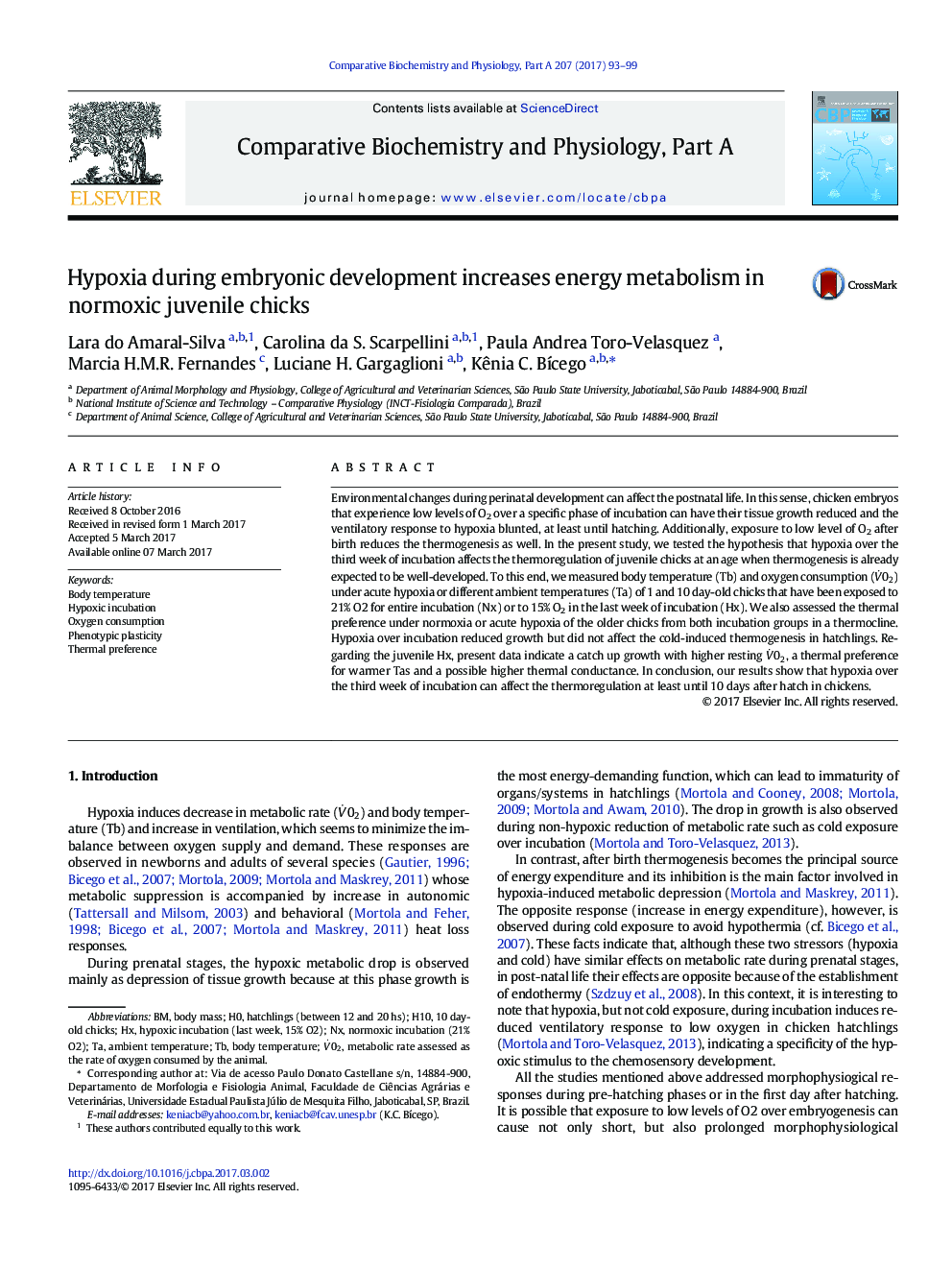| Article ID | Journal | Published Year | Pages | File Type |
|---|---|---|---|---|
| 5510341 | Comparative Biochemistry and Physiology Part A: Molecular & Integrative Physiology | 2017 | 7 Pages |
Abstract
Environmental changes during perinatal development can affect the postnatal life. In this sense, chicken embryos that experience low levels of O2 over a specific phase of incubation can have their tissue growth reduced and the ventilatory response to hypoxia blunted, at least until hatching. Additionally, exposure to low level of O2 after birth reduces the thermogenesis as well. In the present study, we tested the hypothesis that hypoxia over the third week of incubation affects the thermoregulation of juvenile chicks at an age when thermogenesis is already expected to be well-developed. To this end, we measured body temperature (Tb) and oxygen consumption (VÌ02) under acute hypoxia or different ambient temperatures (Ta) of 1 and 10Â day-old chicks that have been exposed to 21% O2 for entire incubation (Nx) or to 15% O2 in the last week of incubation (Hx). We also assessed the thermal preference under normoxia or acute hypoxia of the older chicks from both incubation groups in a thermocline. Hypoxia over incubation reduced growth but did not affect the cold-induced thermogenesis in hatchlings. Regarding the juvenile Hx, present data indicate a catch up growth with higher resting VÌ02, a thermal preference for warmer Tas and a possible higher thermal conductance. In conclusion, our results show that hypoxia over the third week of incubation can affect the thermoregulation at least until 10Â days after hatch in chickens.
Keywords
Related Topics
Life Sciences
Biochemistry, Genetics and Molecular Biology
Biochemistry
Authors
Lara do Amaral-Silva, Carolina da S. Scarpellini, Paula Andrea Toro-Velasquez, Marcia H.M.R. Fernandes, Luciane H. Gargaglioni, Kênia C. BÃcego,
